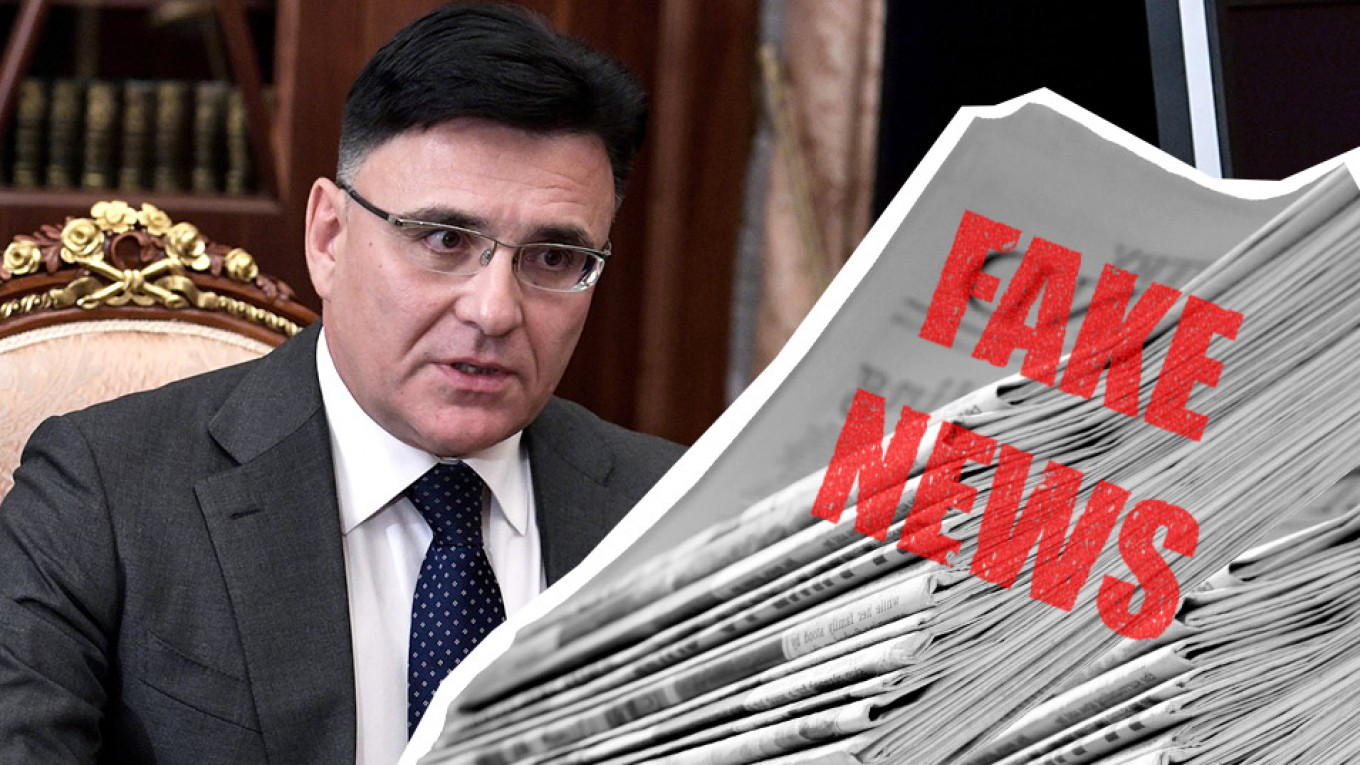
Russia plans to launch a public database of news it flags as “fake,” the head of Russia’s powerful media regulator announced two months after President Vladimir Putin signed a law criminalizing the spread of “fake news.”
Alexander Zharov’s regulatory agency, known by the acronym Roskomnadzor, has successfully blocked LinkedIn in Russia and is currently engaged in a yearlong battle to ban access to the popular Telegram messaging app. Roskomnadzor has also ordered news websites to delete content under a Russian law that bans “blatant disrespect” toward the authorities.
On Wednesday, Zharov was reported to have announced a public registry of so-called unreliable news sources. Offending online news outlets and posts could be legally blocked if the “fake news” is not voluntarily deleted.
“The platform titles and the authors’ last names will be posted on our website,” Zharov was quoted as saying at a “truth and justice” forum in southern Russia by the state-run TASS news agency.
The name-and-shame approach has also been used in Russia’s lower chamber of parliament. Its speaker said in February he hoped the online wall of shame would help parliamentarians “think before they speak” and deter them from making “stupid” comments.
The Russian Foreign Ministry has run its own “fake news-busting” website for more than two years, superimposing a seal saying “FAKE” in red letters on screenshots of disputed articles.
